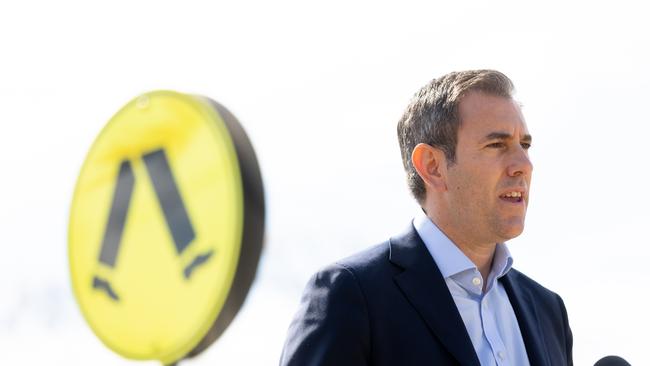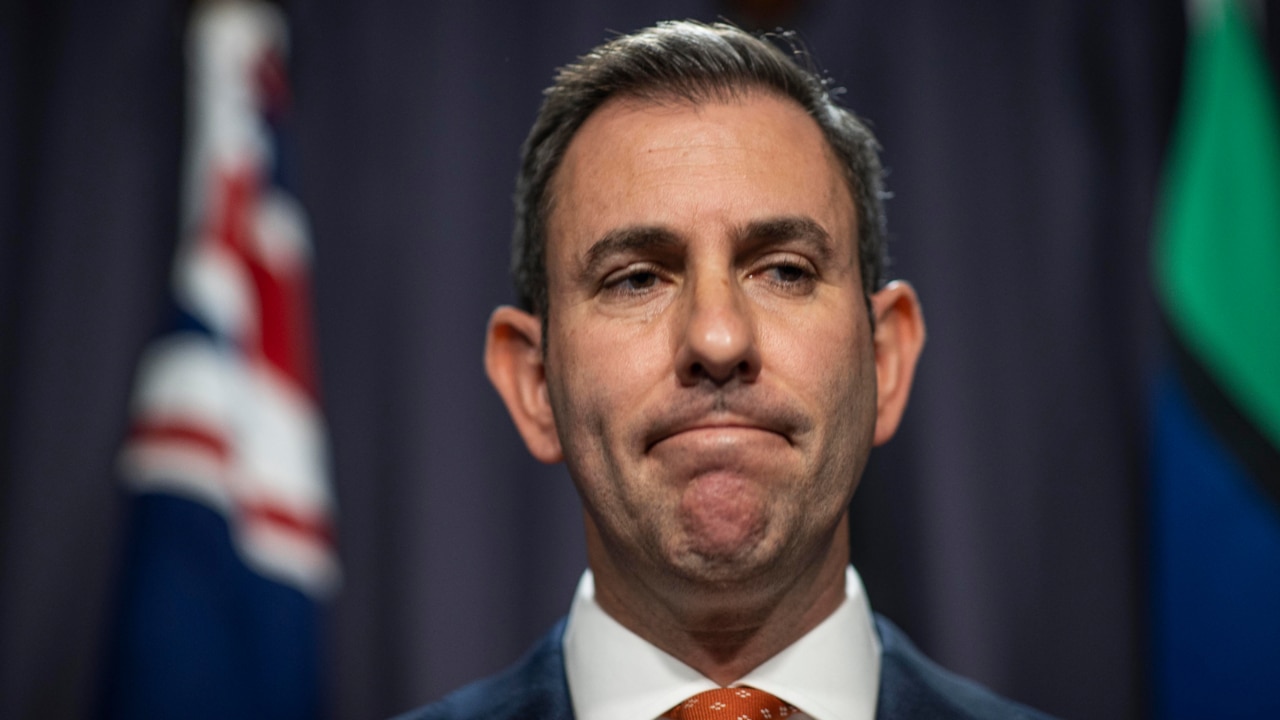Superannuation funds concerned about Jim Chalmers first budget suggest changes in advance
Super funds are so concerned about Treasurer Jim Chalmers’ first budget, they are suggesting changes in advance.

Changes to your super are coming down the line – it might be best to put any long-term plans into “caretaker” mode until October 25, when Jim Chalmers is set to hand down his first budget.
Among the potential changes on the table for October are:
● A first-time-ever limit on how much money an individual can have in the super system;
● Cutbacks in superannuation concessions; and
● Directives to big super funds on how to invest their money.
This week the Treasurer made it clear the ALP sees super very much as its own turf. After all, the $3.4 trillion in super is dominated by industry funds, which in turn have direct links to trade unions.
But as Chalmers was announcing his ambition to get the big funds to swing money into housing and infrastructure, inside the sector the attention was focused on the elevated risk that the new government would peel back super concessions.
In fact, the market’s largest retail fund, Colonial, publicly warned advisers to hold fire on super strategies. The fund told its network that the planned expansion in the amount anyone could keep in tax-free super – which should automatically happen next year – could be rejected in the budget. (This is the indexation of the tax-free limit from $1.7m to $1.8m.)
No wonder the sector is on red alert. The Coalition ran amok on super settings. It froze the Super Guarantee Surcharge plan for years, it introduced a limit on tax free income. It even broke the taboo that super money can only be accessed in retirement with the pandemic-era emergency withdrawal scheme.

Consequently, the door is now wide open for Chalmers to change the rules again and the super sector knows that all too well. That’s why key industry groups are running ahead of the agenda and have already proposed a $5m limit on the total amount that can be kept in super.
Why do that? Because Chalmers might come in even harder with a lower limit.
Just now you can have any amount in the super system. Once the amount you have exceeds $1.7m it falls back into the tax system – but if it stays in a super account it is only taxed at 15 per cent.
In other words, you can have $10m in tax-protected super – it’s what you might call an unintended outcome of earlier policy settings.
Once you digest that anomaly it’s easy to see why organisations such as the Australian Superannuation Funds Association have voluntarily come up with the idea of a $5m cap in its pre-budget submission.
That $5m figure is based on Productivity Commission research that indicated that there are at least 11,000 people with total super balances above that level. Politically, that’s a very troublesome, very small group of people who won’t have too many lobbyists defending them.
On the other hand, the big super funds with $3.4 trillion under management have now become one of the most powerful lobby groups ever seen. Moreover, the ALP has done it no end of favours in recent years.

Most notably, when super was under pressure from all corners during the pandemic, the ALP was steadfast in its support of the continued expansion of the Superannuation Guarantee Charge – that’s the amount every worker must put into super by law. The ALP ensured the figure was raised from 9.5 per cent to 10 per cent last year and went up again to 10.5 per cent on July 1 this year.
As a direct result of these changes, big funds get inflows guaranteed by law every year. The numbers are breathtaking. In figures released this week, we see that the super industry received $63bn in the 12 months to June – an 88 per cent jump due to a boost from the escalating SGC charge. This year could be even better, since the SGC moved higher again in July.
So, you might say Chalmers has 63 billion reasons to believe he has the leverage now to make changes in the super system.
Which brings us back to his push this week to get the big super funds to spend more of their money inside Australia on nation-building projects such as housing and the transition to clean energy.
Chalmers came very close to telling super funds they need to pull back from the wider world of hedge fund, private equity and offshore infrastructure. Former PM Paul Keating – the architect of our broadly successful system – went a step further sayings: “There is a requirement of the funds to look at social opportunities.”
But the problem is that members of big funds are just as alert to their returns as anyone with $10m squirrelled away in a self-managed super fund – they want the best possible returns.
What’s more, the success or failure of major funds is now transparent with the peer pressure provided by the MySuper performance tables open for all to see on the MyGov website.
The big funds may be dotted with labour luminaries (Wayne Swan recently replaced Steve Bracks at Cbus, for example), but they will not be doing anything to co-operate with Chalmers unless the nation-building schemes keep the big funds at the top those performance tables.
Something tells me we will see the cutbacks on concessions and caps much faster than we see the big funds building housing estates to solve the rent crisis.




To join the conversation, please log in. Don't have an account? Register
Join the conversation, you are commenting as Logout